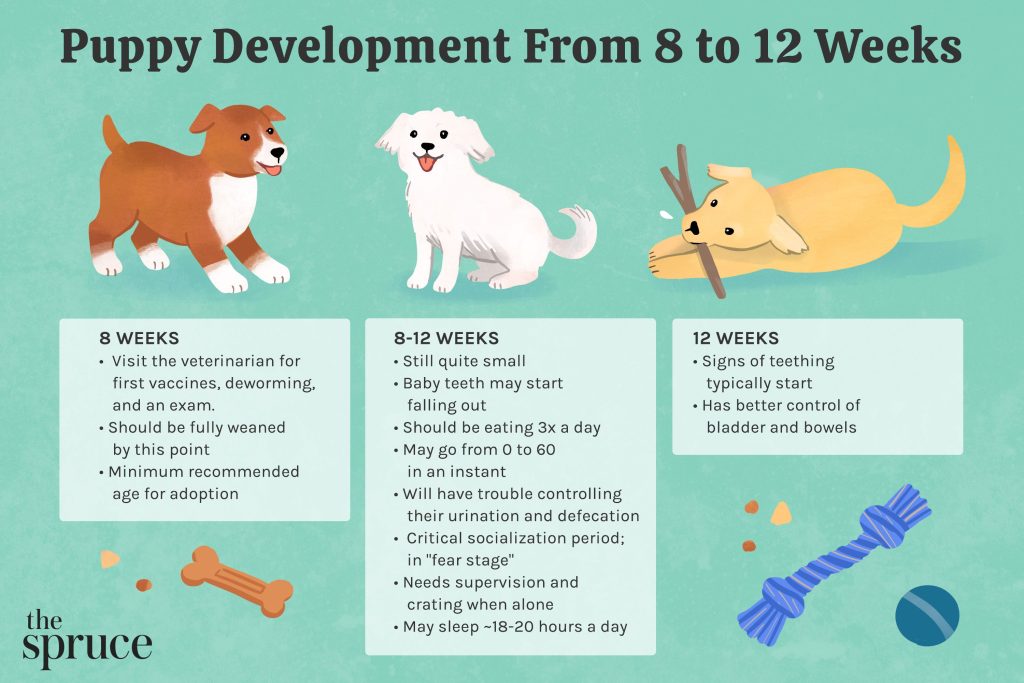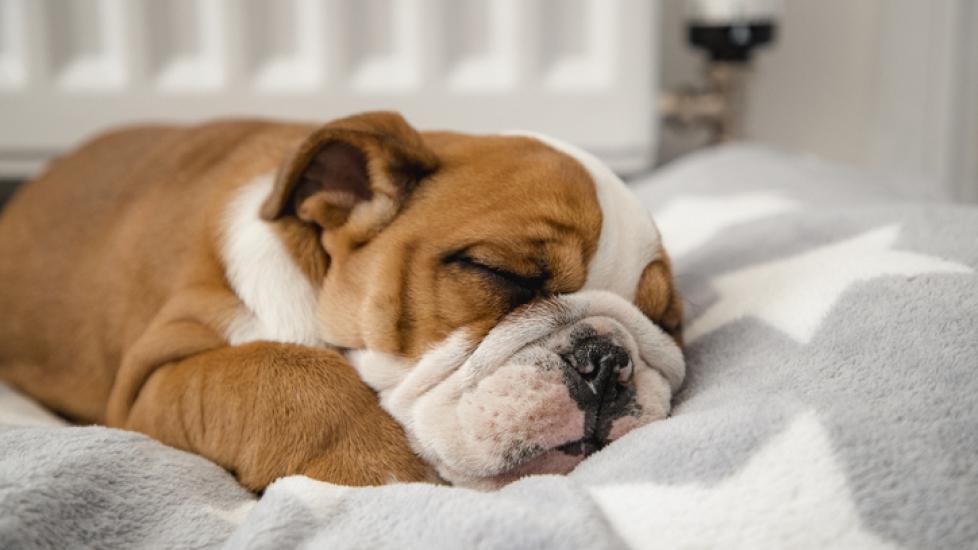Are you unsure about when to put your adorable puppy to bed? Well, fret no more, because we have got you covered! Many new puppy owners wonder about the ideal time to tuck their furry friend in for the night. While it may vary depending on individual circumstances, such as age and breed, establishing a consistent bedtime routine for your puppy is crucial. This article will provide you with some general guidelines to help you determine the best bedtime for your four-legged companion. So, let’s hop right in and ensure your puppy gets the restful sleep they need to flourish!
Factors to Consider
When it comes to putting your puppy to bed, there are several factors that you should take into consideration. These factors include the age of the puppy, their activity level, the routine and schedule you have established, as well as any health or medical conditions they may have. By considering these factors, you can ensure that your puppy gets the rest they need to grow and thrive.
Age of the Puppy
The age of the puppy plays a significant role in determining their sleep patterns and needs. Different age groups have varying sleep requirements and behaviors. Let’s take a closer look at the different stages of puppyhood and how they impact sleep.
Newborn Puppies
Newborn puppies are typically between 0-2 weeks old. During this stage, they spend the majority of their time sleeping. In fact, newborn puppies can sleep up to 22 hours a day! They have not yet developed regular sleep patterns and will sleep for short periods, usually waking up to nurse. As a puppy owner, your role during this stage is to provide a safe and comfortable environment for the puppies and their mother.
Young Puppies (1-4 months)
As your puppy grows, their sleep patterns and needs will change. Young puppies between 1-4 months old tend to be full of energy, playing and exploring their surroundings. However, they still require plenty of sleep to support their growth and development. You may notice that your puppy has bursts of energy followed by periods of deep sleep. It’s important to establish a bedtime routine during this stage to help your puppy unwind and get the rest they need.
Juvenile Puppies (4-6 months)
Between 4-6 months old, puppies enter the juvenile stage. During this time, they experience significant physical and behavioral changes. Their sleep patterns may become more regular, with fewer naps throughout the day. You may also need to make adjustments to their bedtime routine to accommodate their changing needs. This stage is also an excellent time to start incorporating training sessions into your puppy’s routine.
Adolescent Puppies (6-18 months)
As your puppy enters adolescence, their sleep patterns continue to evolve. They may begin to sleep for longer periods at night and take shorter, more frequent naps during the day. This stage can present challenges in terms of training and maintaining consistency with sleep routines. It’s important to provide adequate mental and physical stimulation during this stage to help your puppy channel their energy in positive ways.
Activity Level
The activity level of your puppy is another crucial factor to consider when determining their bedtime. Different breeds have varying energy levels, and individual puppies may also have their unique variations. Understanding your puppy’s activity level will help you gauge their need for sleep and ensure they receive the right amount of rest.
Breed Characteristics
Certain dog breeds are naturally more active than others. For example, sporting breeds like Labrador Retrievers and Border Collies tend to have high energy levels and require plenty of exercise. On the other hand, toy breeds such as Chihuahuas or Bulldogs may have lower activity levels. By considering your puppy’s breed characteristics, you can better understand how much exercise they need and adjust their bedtime accordingly.
Individual Variations
While breed characteristics can offer general guidelines, it’s essential to remember that each puppy is an individual. Even within the same breed, there can be significant variations in energy levels and activity requirements. Pay attention to your puppy’s behavior and energy levels throughout the day. This will help you determine when they are ready for bed and how much rest they need.
Exercise Needs
Regular exercise is vital for your puppy’s overall health and well-being. Providing them with adequate physical activity can help tire them out and promote better sleep. The amount of exercise your puppy needs will depend on their age, breed, and individual energy level. It’s crucial to provide a balance between exercise and rest, especially as excessive physical activity close to bedtime can make it more difficult for your puppy to settle down.
Routine and Schedule
Establishing a consistent routine and schedule is key to helping your puppy develop healthy sleep habits. Dogs thrive on predictability, and having a structured routine will make it easier for your puppy to know when it’s time to sleep.
Establishing a Bedtime Routine
A bedtime routine helps signal to your puppy that it’s time to wind down and prepare for sleep. Consistency is key when establishing a bedtime routine. Start by engaging your puppy in calm activities, such as a short walk or gentle playtime. This will help them expend any remaining energy before bedtime. Follow this with some quiet time, such as a soothing massage or brushing session. Finally, create a comfortable and quiet sleeping environment for your puppy. Providing them with a cozy bed and dimming the lights can help promote relaxation and sleep.
Consistency and Predictability
Dogs thrive on routine and predictability. Stick to a consistent sleep schedule by establishing fixed times for bedtime, waking up, and feeding. This consistency will help regulate your puppy’s internal clock and make it easier for them to settle down at night. Avoid making frequent changes to the schedule unless necessary, as it can disrupt their sleep patterns and lead to confusion.
Flexibility for Adjustments
While consistency is essential, it’s also important to have flexibility in your puppy’s sleep routine. Life is full of unexpected events and changes, and your puppy’s sleep patterns may need to be adjusted at times. Whether it’s due to travel, guests, or other disruptions, be prepared to adapt their routine accordingly. Gradually introduce any changes to minimize disruptions and help your puppy adjust more easily.
Balancing Sleep and Play Time
Finding the right balance between sleep and playtime is crucial for your puppy’s overall well-being. While puppies have plenty of energy, they also need adequate rest to grow and develop. Make sure to provide time for both physical and mental stimulation during the day, followed by designated periods for rest and sleep. By providing a balanced routine, you can help ensure that your puppy remains happy, healthy, and well-rested.
Health and Medical Conditions
Your puppy’s health and any underlying medical conditions can also impact their sleep patterns and needs. It’s important to consult with a veterinarian to address any concerns and develop a plan that supports your puppy’s specific requirements.
Consulting with a Veterinarian
Regular veterinary check-ups are essential to monitor your puppy’s health and identify any potential medical conditions that may impact their sleep. If you notice any irregularities in your puppy’s sleep patterns, such as excessive sleepiness or difficulty sleeping, it’s crucial to seek professional advice. A veterinarian can assess your puppy’s overall health and provide guidance on how to address any specific concerns.
Specific Medical Needs
Certain medical conditions or medications can affect your puppy’s sleep. For example, puppies with gastrointestinal issues may experience discomfort that disrupts their sleep. In such cases, your veterinarian may recommend dietary changes or medication to alleviate their symptoms. Additionally, some medications may have side effects that affect your puppy’s sleep patterns. Consulting with your veterinarian will ensure your puppy receives appropriate care and support for their specific medical needs.
Behavioral Issues
Behavioral issues, such as separation anxiety or fear-based behaviors, can also interfere with your puppy’s sleep. Puppies experiencing anxiety or stress may have trouble settling down at night or may wake up frequently during the night. Addressing these behavioral issues through training, desensitization, or behavior modification techniques can help improve your puppy’s sleep and overall well-being.
External Factors affecting Sleep
Various external factors can impact your puppy’s ability to sleep soundly. It’s important to address these factors to ensure your puppy gets the rest they need.
Noise and Disturbances
Loud noises, such as construction, traffic, or even household activities, can disrupt your puppy’s sleep. Consider creating a quiet and secluded sleeping area for your puppy, away from any noisy or high-traffic areas. Additionally, using white noise machines or calming music can help drown out external noises and create a more soothing sleep environment for your puppy.
Temperature and Comfort
Your puppy’s sleep environment should be comfortable and conducive to restful sleep. Ensure the room temperature is neither too hot nor too cold, as extreme temperatures can disrupt sleep. Provide a cozy bed or crate with soft bedding to help your puppy feel secure and comfortable.
Lighting and Darkness
The presence of light can affect your puppy’s sleep. Make sure their sleep area is sufficiently dark to promote melatonin production, which aids in sleep regulation. Consider using blackout curtains or shades to block out any external light sources. On the other hand, nightlights can be soothing for puppies who may feel anxious in complete darkness.
Separation Anxiety
Puppies experiencing separation anxiety may have difficulty settling down at bedtime. They may whine, bark, or exhibit destructive behaviors in an attempt to seek comfort. Addressing separation anxiety through positive reinforcement training, gradual desensitization, and providing appropriate comfort objects can help your puppy feel more secure and settle down for restful sleep.
In conclusion, putting your puppy to bed at the appropriate time is essential for their health and well-being. By considering factors such as age, activity level, routine and schedule, as well as any health or medical conditions, you can create a sleep routine that meets your puppy’s unique needs. Remember, providing a comfortable and structured sleep environment, along with appropriate exercise and mental stimulation, will help your puppy get the rest they need to grow into happy and healthy adults.










